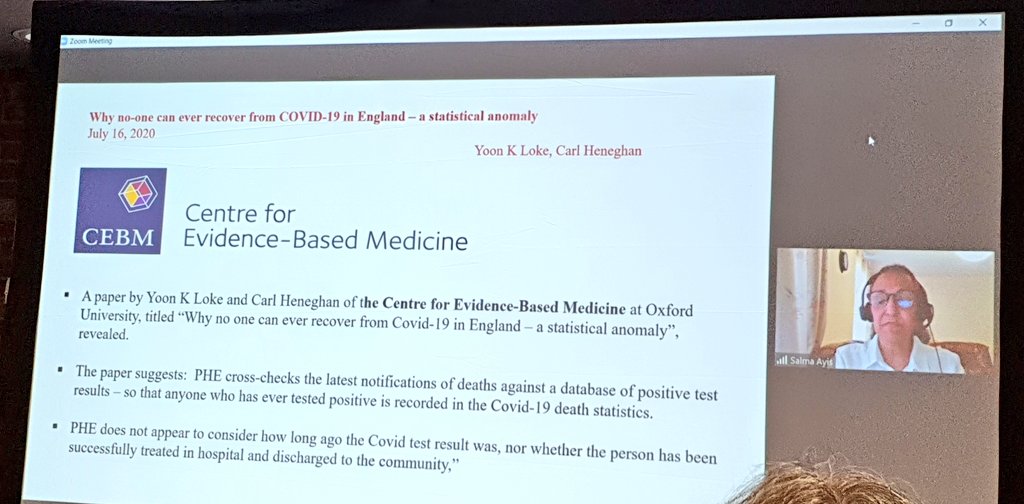
If you are at #RSS2021Conf this morning, check out our invited session on Contagious disease #statistics and #misinterpretation of #COVID dynamics and data with @AdamJKucharski and @AyisSalma
11:40am, Exchange 10
11:40am, Exchange 10
https://twitter.com/RSSMedSection/status/1433715273262108673
First speaker is @AyisSalma, reflecting on the subtle but important difference of what we think and what data are.
#COVID19 statistics are easily misinterpreted
#COVID19 statistics are easily misinterpreted

Statistical anomalies in calculations of #COVID19 infections and deaths meant it appeared that no-one ever recovered!
And these figures influenced government #publichealth decisions
And these figures influenced government #publichealth decisions

The choice of denominator (population or subset of the population) is very important in #COVID19 research.
Confounding and collider bias impacting on estimates must also be considered
Confounding and collider bias impacting on estimates must also be considered

Can your #ArtificialIntelligence differentiate #cats 😸 from #COVID19?
Not always it seems!
deepai.org/publication/ca…
Not always it seems!
deepai.org/publication/ca…

Observed data are not very useful in epidemics. Data are incomplete, out of date, and often #biased.
Hindsight is a wonderful thing, but what can be done in real time?
Hindsight is a wonderful thing, but what can be done in real time?

Early methods included sequential #montecarlo modelling of the R statistic and infection rates.
But the estimate depends on the data source and must be interpreted in terms of data lag and under reporting

But the estimate depends on the data source and must be interpreted in terms of data lag and under reporting


Scenarios can be modelled using a range of data sources and assumptions.
But it is it essential to #communicate the difference between #forecasts and #scenarios
❓What WILL happen vs what COULD happen?

But it is it essential to #communicate the difference between #forecasts and #scenarios
❓What WILL happen vs what COULD happen?


Estimating R requires:
- Duration ⏳
- Opportunities 🤝
- Transition probability 🎲
- Susceptibility 🤒
But which data sources to use? And what really drives R?
- Duration ⏳
- Opportunities 🤝
- Transition probability 🎲
- Susceptibility 🤒
But which data sources to use? And what really drives R?

Final reflections we can all agree with!
Modelling outbreaks and pandemics needs to be:
- Fast ⏩⏰
- Open 🧐
- Peer-reviewed 📖🤓
- Collaborative 🤝👫

Modelling outbreaks and pandemics needs to be:
- Fast ⏩⏰
- Open 🧐
- Peer-reviewed 📖🤓
- Collaborative 🤝👫


• • •
Missing some Tweet in this thread? You can try to
force a refresh









